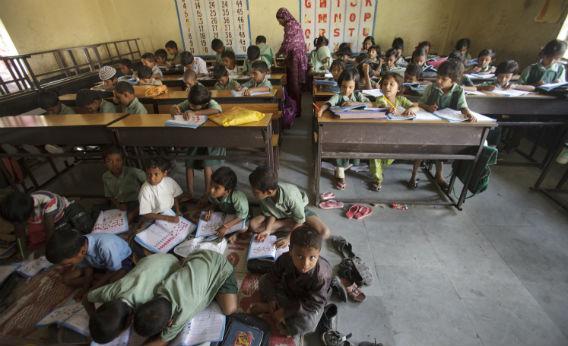Links:
The Black Star Project's website:
Black Star Journal:
|
|  Supreme Court Upholds State's Ban On Affirmative Action In (Michigan) College Admissions WASHINGTON (AP) - A state's voters are free to outlaw the use of race as a factor in college admissions, the Supreme Court ruled Tuesday in a blow to affirmative action that also laid bare tensions among the justices about a continuing need for programs that address racial inequality in America. The 6-2 decision upheld a voter-approved change to the Michigan Constitution that forbids the state's public colleges to take race into account. That change was indeed up to the voters, the ruling said, over one justice's impassioned dissent that accused the court of simply wanting to wish away inequality. The ruling bolsters similar voter-approved initiatives banning affirmative action in education in California and Washington state. A few other states have adopted laws or issued executive orders to bar race-conscious admissions policies. Justice Anthony Kennedy said voters in Michigan chose to eliminate racial preferences, presumably because such a system could give rise to race-based resentment. Kennedy said nothing in the Constitution or the court's prior cases gives judges the authority to undermine the election results. "This case is not about how the debate about racial preferences should be resolved. It is about who may resolve it," Kennedy said. He stressed that the court was not disturbing the holding of a 2003 case from Michigan -which gave rise to the 2006 Constitution change - permitting the consideration of race in admissions. A Texas affirmative action case decided in June also did nothing to undermine that principle, Kennedy said. In a separate opinion siding with Kennedy, Justice Antonin Scalia said Michigan residents favored a colorblind constitution and "it would be shameful for us to stand in their way." Strongly dissenting from the majority, Justice Sonia Sotomayor said the decision trampled on the rights of minorities, even though the Michigan amendment was adopted democratically. "But without checks, democratically approved legislation can oppress minority groups," said Sotomayor, who read her dissent aloud in the courtroom Tuesday. Justice Ruth Bader Ginsburg sided with Sotomayor. |
| Two teens wounded, one critically, in South Shore shooting April 22, 2014 (CHICAGO) (WLS) -- Two boys, ages 14 and 16, were shot in South Shore following a violent weekend in Chicago. The younger victim was critically wounded.
The two boys are the latest victims of gun violence in Chicago. This past weekend nine people died and more than 30 others were injured in shootings across the city.
Five children were hurt in a drive-by shooting in the Park Manor neighborhood on Sunday night. During a peace vigil at St. Sabina Church, a short distance from where the Monday night shooting took place, Mayor Rahm Emanuel called for an end to Chicago violence that same evening.
Bronzeville community activists said Tuesday this kind of violence is becoming all too common in Chicago, and they're taking steps they hope will help make it stop.
Phillip Jackson, founder of the Black Star Project, said the answers have to come from the community. He said young men and women need to have hope and a vision of how to accomplish their goals.
"The police can't stop this," Jackson said. "Even if there's a policeman on every corner, they can't stop this violence."
The Black Star Project hosts regular meetings where speakers help mentor young people in the community. Tuesday night's guest is Albert Grace, co-founder of downtown investment firm Loop Capitol. Grace grew up on the South Side.
"He actually did it," Jackson said. "He's not going to be talking theory, he's not going to be talking about what's coming out of a book. He's going to be talking about his life as a black man, as a young black boy on the South Side of Chicago growing up and creating one of the most successful investment capital firms in the country."
|
| The Black Star Project Is Looking For A Few Good Women to Mentor Black Girls   Women Mentors Will Meet to Plan on
Thursday, April 24, 2014, 6:30 pm
The Black Star Project
3509 South King Drive
Chicago, Illinois
Please call 773.285.9600 for more information
*************************************************************************************** Young girls 9 to 14 years old should call us at 773.285.9600 to become part of this program. |
| The Parent Revolution Hits the Road 
at
South Side Church
1:30 pm to 3:00 pm
864 E. 64th Street
Chicago, Illinois Please call 773.285.9600 for more information |
 Parental Incarceration Has Worsened Disparities Between Black, White Children By Holly Yettick April 18, 2014 A pair of sociologists has taken a ruler to the role that parental incarceration plays in childhood inequality, only to learn that a measuring wheel might have been a more appropriate tool. By contrast, that rate was 14 percent for black babies born just 12 years earlier, in 1978. What happened between those two periods is that the U.S. incarceration rate exploded; it is currently both the highest in the world and the highest it has ever been. For whites, the percentages of children with incarcerated parents also increased, but remained much lower. About 3 percent of white babies born in 1990 had witnessed parental incarceration by age 14, as compared to 1 percent of white babies born in 1978. The study focused on black and white children because the differences are starker and also because large-scale data sets have classified Hispanics inconsistently throughout the years, making it difficult to assess the impact of parental incarceration. "We anticipate that the results we discuss here would apply in much the same direction (if not magnitude) to Hispanic children," the authors write. Overall, more than 3 percent of American children (2.7 million) have a parent in prison on any given day. "In most instances," Wakefield and Wildeman state, "the removal of a parent makes a bad situation worse." As a result, children whose fathers have been incarcerated fare worse than similar children whose fathers have not been locked up. For instance, they have higher rates of problems with mental health and behavior. Wakefield and Wildeman also found that the large increases in parental incarceration over time increased the disparities between black and white children's behavioral problems. Children with incarcerated parents are also more likely than similar children to end up homeless. Wakefield and Wildeman conclude that the black-white gap in childhood homelessness would have been 26 percent to 65 percent smaller had mass imprisonment never occurred. Finally, children of incarcerated fathers are more likely to die before the age of 1. |
 International Study Shows Payments to Parents Best Way to Increase Student Success  | | (Kuni Takahashi/Getty Images) |
Thursday, May 10, 2012 Over the past 50 years, remarkable progress has been made ensuring that children receive basic education. More than 60 percent of adults in low-income countries can read and write, whereas in 1962, just one-third were literate. Today, nearly nine in 10 children around the world complete primary school. Thus, Peter Orazem considers three strategies that seem to offer the best evidence of success to date: nutrition supplements, offering information on returns to schooling, and conditional cash transfers for school attendance. All have been shown to succeed with benefits that exceed the costs. It may seem surprising to focus on nutrition to achieve better schooling, but malnourished children learn poorly. Insuring proper nutrition when brain development is occurring makes a significant difference. Increasing the years a child spends in school simply by providing accurate information to kids and parents on the returns of education schooling is another promising and relatively inexpensive intervention. Finally, Orazem argues that the most consistent evidence of success in recent years comes from making payments to underprivileged parents conditional on their children attending school. These programs-known as conditional cash transfers--have consistently increased child attendance, even when the transfer is modest. Administrative costs have been lower than those of other social interventions. In addition to positive schooling outcomes, these transfers have lowered the poverty rate, improved the nutritional status of poor households, and have increased the proportion of children receiving vaccinations and other health services. While there is great variance in performance, a dollar spent on such programs on average produces benefits of about $9. Because the programs increase the intensity of child investment in school as well as child time in school, they help to break the cycle of poverty whereby poor parents underinvest in their children's schooling and doom their children to poverty. Yet, cash-transfers programs are much more expensive than nutrition or health interventions. That might explain why cash transfer programs are concentrated in wealthier countries while nutrition programs typically focus on the poorest countries. Bjorn Lomborg is a Nobel Laureate in Economics |
| "You want to educate your Black children? Then you will go to jail!!!" Kelley Williams-Bolar was jailed for seeking the best education for her daughters. She will speak to parents and educators about education for poor, Black children and their families in American schools. Saturday, May 10, 2014 1:00 pm at The MET (Metropolitan Apostolic Church) 4100 South King Drive Chicago, Illinois Ms. Williams-Bolar has paid a high price to educate her children. Are you willing to invest 2 hours of your time to hear Ms. Williams-Bolar discuss education in America? The MET and The Black Star Project are asking churches, social service organizations, businesses, schools, universities, street organizations, government agencies or individuals to sponsor Ms. Williams-Bolar's coming to Chicago for this lecture. Please call 773.285.9600 to RSVP or to contribute to this cause. There will be a special reception with Ms. Williams-Bolar and her daughters for those who support this cause. |
| | | | | |